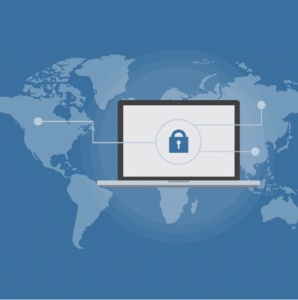Cloud services offer convenient ways in which you can access your data and information without carrying your hardware storage devices. But since they use the internet, cloud services are also vulnerable to a myriad of risks and threats. Here are some tips in which you can protect your cloud data;
Evite almacenar información sensible
Internet privacy can be breached anytime and due to this reason, storing personally identifiable information (PII) in your cloud is a NO. There are many risks, for instance, if your cloud service is breached, PII can be used in identity theft and wreak havoc in your financial accounts. Also, hackers may get information that can be used to blackmail you.

Encrypting your data means that no one will have a peep at it even if your cloud service is breached. Also, encryption can give you some confidence in storing some confidential information in the cloud as long as you keep the decrypting key away from the reach of cybercriminals.
Utilice servicios en la nube que cifren sus datos
For enhanced security and privacy, after encrypting your data, upload it to a cloud service that also encrypts your data. This will provide an additional layer of protection or what can be seen as double encryption. This extra layer of security offered by cloud services is known as zero-knowledge proof. This means that even the cloud provider won’t know what your data contains. The key for this encryption always stays in your device.
Lea las condiciones del proveedor de servicios en nube
La mayoría de la gente se limita a hojear y luego hacer clic en "aceptar" las condiciones de servicio y las políticas de privacidad de los proveedores de la nube sin saber siquiera qué implica el servicio. Algunos proveedores pueden afirmar que tienen derecho a redistribuir algún tipo de datos, como tus imágenes. Otros pueden indicar que tienen derecho a retirar tu contenido de su nube si es objetable. Otros también pueden afirmar que tienen derecho a escudriñar tus datos sin previo aviso ni divulgación. Si aceptas estas condiciones sin leerlas, es como si estuvieras publicando tus datos en Internet.
Utilice una contraseña segura y la autenticación de dos factores (2FA)
When setting up your cloud account, use a secure strong password of at least 8 to 12 characters long. This password must contain uppercase and lower-case letters, symbols and numeric. The password should not include your name or anything that associates it with your account. Also manage your password frequently.
Apart from a strong password, also implement 2FA, most cloud services offer it. 2FA will help secure your cloud account even if by chance cybercriminals get hold of your password.
Haga una copia de seguridad de sus datos
La nube puede ser práctica, pero a veces también poco fiable. Por ejemplo, no podrás acceder a tus datos si no tienes conexión a Internet. En otro caso, los piratas informáticos pueden alterar o borrar tu copia de seguridad en línea. El servicio en la nube también puede dejar de funcionar por mantenimiento. Para proteger tus datos, ten una copia de seguridad de tu copia de seguridad preferiblemente en un disco duro encriptado.

Lastly, use a VPN when access or uploading data to your cloud account. A VPN provides the required privacy and security that ensure your data is safe from prying eyes. A VPN also offers other benefits such as gaining access to restricted content and also circumventing censorships.



